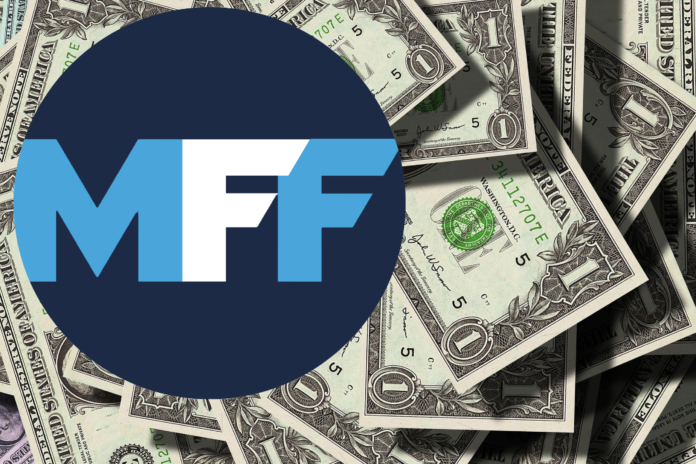
“Please help me protect my family and my community from the irresponsible behavior of funds like these,” a Minnesotan man begged of lawmakers at a bill hearing, Monday.
Seven months ago, the man’s wife was called to the Hennepin County Medical Center (HCMC). When she arrived, she found her husband, beaten beyond recognition. “His face didn’t look the same … [he] did not know where he was, who he was or why he was there,” she told legislators.
The man didn’t know it then, but his life had just changed forever. He had suffered a traumatic brain injury that would leave him unable to work for the better part of a year.
The person responsible for assaulting the man is Lionel Timms.
Days before Timms assaulted the defenseless man, he was arrested for a similar offense but was quickly bailed out by the Minnesota Freedom Fund (MFF). Now, a coalition of state legislators have come together to regulate entities like the MFF, arguing that they do far more harm than good.
State Sen. Mark Koran introduced SF415 alongside Sens. Warren Limmer, Rich Draheim, Roger Chamberlain, and Lindsey Port in an attempt to rein in the actions of “charitable bail” organizations like the MFF. These funds use donated money to anonymously post bail for accused criminals, seemingly at random.
During Monday’s hearing, it was estimated that the MFF alone has a war chest in excess of $30 million. MFF President Greg Lewin has said he uses the money to free accused criminals simply to challenge the existing order of the criminal justice system.
“I often don’t even look at a charge when I bail someone out … it is not the point … the point is the system that we’re fighting,” he said in an interview, just days after his fund bailed out a man accused of raping an eight-year-old girl.
The fund has also bailed out the same repeat criminal twice, one of the men arrested in the recent carjacking crackdown, four serial domestic abusers, an accused murderer, a serial rapist and more.
“What we’ve seen [recently] is we now have a charitable bail organization operating as a nonprofit that doesn’t appear to follow any rules or standards, and they’re not licensed as other charitable bail organizations are,” Koran explained at Monday’s hearing.
He is further concerned that these organizations are soliciting funds supposedly to bail out peaceful protesters, but are turning around and using the money to assist hardened criminals instead.
“What we discovered is that this money was raised to bail out peaceful protesters and on a good day we think only 12 peaceful protesters were bailed out,” said Jeff Clayton, the director of the American Bail Coalition.
Clayton played a key role in drafting the bill and was invited to advocate on its behalf on Monday. “This legislation creates sunshine and transparency,” he said. “Without transparency, the donors never know” how their money is being used.
Timms’ victim also shared this concern. “I never imagined that money donated to support peaceful protesters who were jailed would ever be reallocated to release a repeat violent offender,” he said. “The people who donate to these funds never imagine their money would be used to create serious public safety risks, to increase violence in our streets or to harm innocent people.”
Not only does the current system lack transparency for its donors, it also leaves the justice system in the dark.
“Courts don’t know who’s posting the bails, sheriffs don’t know who’s posting the bails and prosecutors don’t know who’s posting the bails and that’s a problem,” Clayton said at the hearing.
He also suggested that many bails posted by large funds don’t qualify as “sufficient surety.” Citing the Hofstra Law Review, Clayton explained how bails are supposed to be placed by somebody who has something to lose if the defendant doesn’t show up to court. When a multi-million dollar fund anonymously buys out bails by the dozen, they have nothing to lose if the accused skip town. Therefore, bails posted by the MFF and others may not legally qualify as sufficient surety.
However, SF415 doesn’t want to do away with crowdfunded bails entirely.
The bill “doesn’t stop me from raising bail for my friend, my mom, my dad, I can crowd source, I can go on the Internet, I can do it on a one-off basis … it’s only when you start doing it on a routine basis that this [bill] kicks in,” Clayton explained.
“What this bill does is attempts to move them [the bail funds] in some regulatory manner to make sure that we have some oversight, some parameters,” said Koran. Specifically, the senator said his bill would prohibit big money bail funds from freeing those accused of crimes similar to ones they’ve already been convicted of, those accused of sex crimes and those with a felony rap sheet.
If passed, SF415 would also benefit bail fund donors’ pocketbooks, as the registration of bail funds as regulated charitable organizations would make contributions to them tax deductible.
Many believe it would benefit the safety of Minnesota as a whole. “The Minnesota Freedom Fund, flippantly and with zero effort or research, bailed out a violent person … and that’s why my husband ended up in the ER,” the victim’s wife said during the hearing.
“I’m asking anyone who will listen … to put in some sort of protocols or quality systems to make sure that no more stories like ours happen,” the victim added.
In a statement posted on Twitter, MFF claimed that SF415 is “designed” to “punish the poor while making sure that the for-profit bail industry continues to make money off of people’s suffering.”
“It should come as no surprise that the American Bail Coalition backs the bill,” said the group. “MFF and its allies will work endlessly to prevent SF415 from passing. People who can afford bail shouldn’t be given any more presumption of innocence or protection under the law than those who can’t. Minnesota needs to end the cash bail system, not make it stronger.”
Update: The names of the victim and his wife have been removed from this story at their request.
















